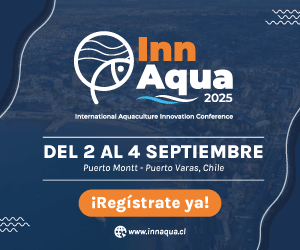Hawái, EEUU.- En el mes de noviembre el Aquatic Feeds and Nutrition Department del Oceanic Institute de la Hawaii Pacific University acogió el taller “Local Feed” para compartir nueva información de varios proyectos de desarrollo de dietas acuícolas del Center for Tropical and Subtropical Aquaculture (CTSA).
El taller contó con la participación de 32 productores, científicos y otros miembros de la industria quienes atendieron las presentaciones de científicos y representantes del Oceanic Institute, University of Hawaii en Manoa, Cyanotech y Big Island Abalones Corporation.
Usted puede descargar las presentaciones de la página web de CTSA. Dos de las siete presentaciones son presentados como resúmenes debido a que la información aun no esta disponible para el publico en general.
«Development of Practical Local Feeds to Support Sustainable Aquaculture in Hawaii and Other Pacific Islands»
Dr. Dong-Fang Deng, Aquatic Feeds and Nutrition Department, Oceanic Institute of Hawaii Pacific University
This presentation focused on work completed under a CTSA-funded project to develop aquatic feeds using ingredients found locally in Hawaii and the Pacific region. To date, the research team has analyzed several ingredients, such as cassava, breadfruit, macadamia nuts, and a variety of oils including algal oil and insect oil; in addition, four test diets have been developed and a feeding trial was conducted. Initial results found that fish meal from the Republic of the Marshall Islands, Spirulina, and Black soldier fly are good protein sources, and that cassava is a potential carbohydrate source for local feed production. In addition, black soldier fly and Haematococcus may provide potential minerals for tilapia feed. Furthermore, the feed trial found that the production efficiency of the diet formulated with 94% of local ingredients is 85% of the commercial feed, and that growth performance (except for the PER) is similar for the tilapia fed the local diet and the control diet. A significant part of the project has been the utilization of Near Infrared Spectroscopy (NIRS), which allows the research group to quickly and efficiently conduct raw material testing/analysis, product quality control, and processing monitoring; this technology was demonstrated to workshop participants as part of this presentation.
«Fortifying Yeast as Enrichment Diets for Live Feeds in Aquaculture»
Dr. Wei Wen Su, Dept. of Molecular Biosciences and Bioengineering, University of Hawai’i, Manoa
This presentation discussed the current CTSA project to utilize a common aquatic feed ingredient (yeast) as an alternative source of nutritionally-important EPA and DHA in feeds for fish larvae. To date, the research group has successfully enriched the Yarrowia yeast (chosen for a variety of factors) through a 4-step process that includes incubation with scrap fish oil to increase the level of HUFAs. Preliminary results indicate efficient uptake and storage of EPA and DHA from fish oil, and work is ongoing to further optimize the process and to conduct rotifer feeding tests using the enriched yeast. This work has potential to eventually create a locally produced, sustainable source of fish larvae feed.
«Utilization of Local Agri-processing By-products to Produce Fungal Protein for Aquatic Feed Production»
Dr. Samir Khanal, Dept of Molecular Biosciences and Bioengineering, University of Hawai’i, Manoa
http://www.ctsa.org/files/publications/Local-feed_workshop-OI-Khanal.pdf
«Commercial Production of Spirulina»
Dr. Gerry Cysewski, Chief Science Officer, Executive Vice President. Cyanotech
http://www.ctsa.org/files/publications/Feed_Workshop_2014Cysewski_.pdf
«Developing Local Diets for Hawaii Cultured Abalone with Normal Shell Color and Growth Performance»
Dr. Zhi Yong Ju. Aquatic Feeds and Nutrition Department, Oceanic Institute of Hawaii Pacific University
«Utilization of Locally Available Algae in the Culture of the Ezo Abalone in Hawaii»
Dr. Cecilia Viljoen, R&D Director at Big Island Abalone
http://www.ctsa.org/files/publications/BIAC_OI_presentation_Nov_2014.pdf
«Opihi Aquaculture, Feeds»
Dr. Harry Ako, Dept. of Molecular Biosciences and Bioengineering, University of Hawai’i, Manoa
http://www.ctsa.org/files/publications/Opihi_aquaculture,_feeds.pdf
Editor de la revista digital AquaHoy. Biólogo Acuicultor titulado por la Universidad Nacional del Santa (UNS) y Máster en Gestión de la Ciencia y la Innovación por la Universidad Politécnica de Valencia, con diplomados en Innovación Empresarial y Gestión de la Innovación. Posee amplia experiencia en el sector acuícola y pesquero, habiendo liderado la Unidad de Innovación en Pesca del Programa Nacional de Innovación en Pesca y Acuicultura (PNIPA). Ha sido consultor senior en vigilancia tecnológica, formulador y asesor de proyectos de innovación, y docente en la UNS. Es miembro del Colegio de Biólogos del Perú y ha sido reconocido por la World Aquaculture Society (WAS) en 2016 por su aporte a la acuicultura.

